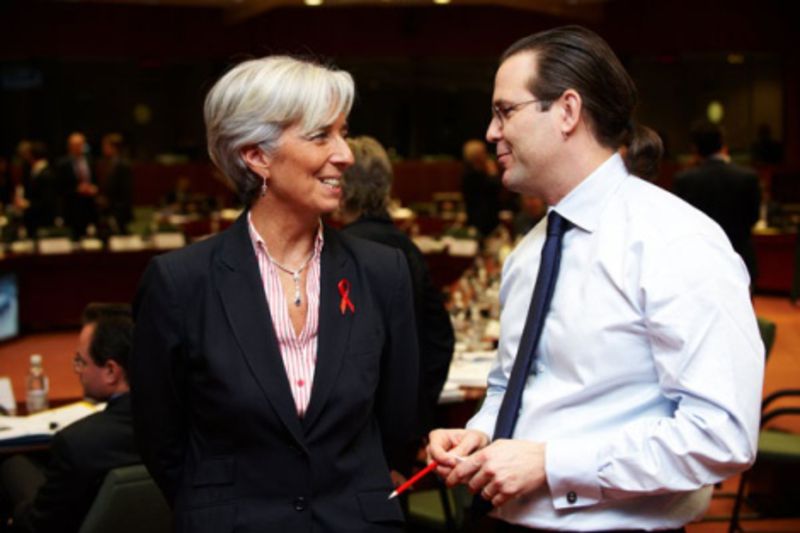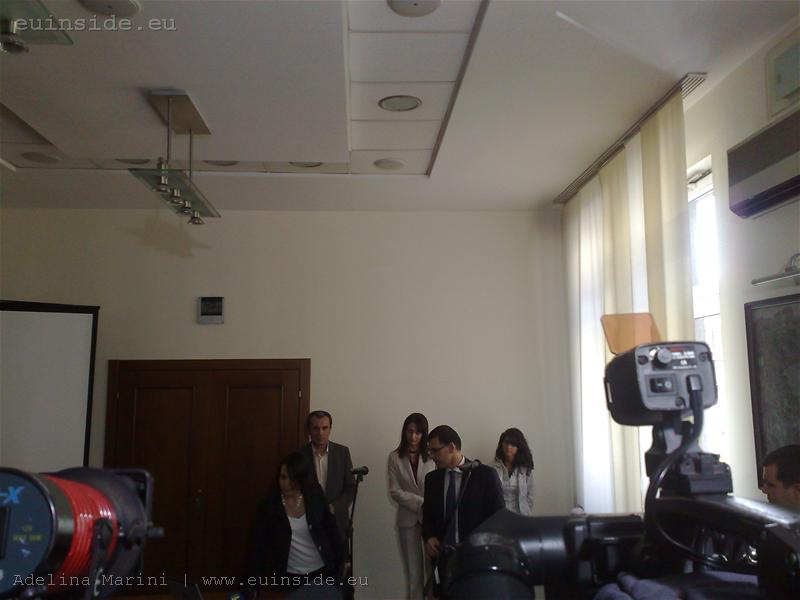The European elections campaign starts in Bulgaria
Adelina Marini, May 17, 2009
Today the campaign for the European elections officially opens. It will be just 21 days after the Parliament decided to cut it just weeks before the elections. For 21 days the candidates for the European Parliament will have to convince us how important the EP is but probably will use the campaign to prepare for the National elections, set for the 5th of July. That is why some parties have already presented their programmes. The Blue coalition will work for tight economic policy and a tough fight with corruption and organised crime and the NDSV (The National Movement for stability and progress) will focus on family. Coalition for Bulgaria (socialist parties) promises to protect the interests of the farmers, young people and small and medium enterprises.
 In the Day of the Family, 15th of May, NDSV were first to present part of their programme and that was the part concerning family issues. The yellow party has for a long time been attached to the issue and during their government together with the DPS (2001-2005) they introduced the family taxation, removed last year by the current government in which NDSV also participates as a minor partner. The specific proposals of the party are as follows:
In the Day of the Family, 15th of May, NDSV were first to present part of their programme and that was the part concerning family issues. The yellow party has for a long time been attached to the issue and during their government together with the DPS (2001-2005) they introduced the family taxation, removed last year by the current government in which NDSV also participates as a minor partner. The specific proposals of the party are as follows:
- Mothers to receive 100 % of its income for 12 months of mother care;
- Increase of at least 50 % of the money, paid by the budget for each child;
- Special programme for improvement of conditions in hospitals with birth wards;
- Remission of student credits when a second child in a family is born;
- Easier access to mortgages for families with children;
- 600 levs aid for the birth of a child, paid once;
- Relieved procedures for adoption;
- 100 levs vouchers for all children that are not enlisted in a municipal kindergarten.
The current government, of which NDSV is part, made significant changes in the Family code which evoked furious debates in society especially regarding the recognition of the non-married families as official family unit. The code has not been approved by the present Parliament, in spite the calls even of the president Gheorghi Parvanov and will probably remain for the next Parliament. NDSV called on the future MPs to pay serious attention to the Code.
 So far only the Blue coalition has presented its programme in its entity, divided into 12 chapters. A serious focus is put, expectedly, on the economic programme which plans serious cut in expenses of 38 %.Now the expenses of the government are a little over 40 % and that was the case for the least at least 6 years. The Blue coalition also promises reduction of the VAT rates, no VAT for people who bought their first house, reduction of the obligatory bank reserves to 6 % from the current 8, which were before the crisis 12 %.
So far only the Blue coalition has presented its programme in its entity, divided into 12 chapters. A serious focus is put, expectedly, on the economic programme which plans serious cut in expenses of 38 %.Now the expenses of the government are a little over 40 % and that was the case for the least at least 6 years. The Blue coalition also promises reduction of the VAT rates, no VAT for people who bought their first house, reduction of the obligatory bank reserves to 6 % from the current 8, which were before the crisis 12 %.
The blue plan serious reforms in the sphere of fight with corruption and organised crime which is a very serious issue for Bulgaria. They promise: changes in the Constitution, the Judiciary legislation and the Penal Code which should allow the inclusion of the prosecution and the investigation service into the government. They also promise introduction of effective witnesses protection programme and others more general measures, which could easily be found in the reports of the European Commission for the last years.
The blue also promise a thorough reform in healthcare. It's worth mentioning that it was exactly the blue government of Ivan Kostov 91997-2001) that started the reform in the healthcare system by introducing the health security and established the National health security fund. But since then the reform hasn't progressed any further. Logically, after Healthcare comes education and the Blue coalition promises reforms here too. They intend to neglect the Strategy for school education until 2015, approved by the current government, which became the basis for the entirely new legislation for school education still not approved by the Parliament.
The Blue coalition also intends to introduce an obligatory examination on civil education and plans the introduction of project type of financing in education.
 | © Consilium
| © Consilium | © euinside
| © euinside